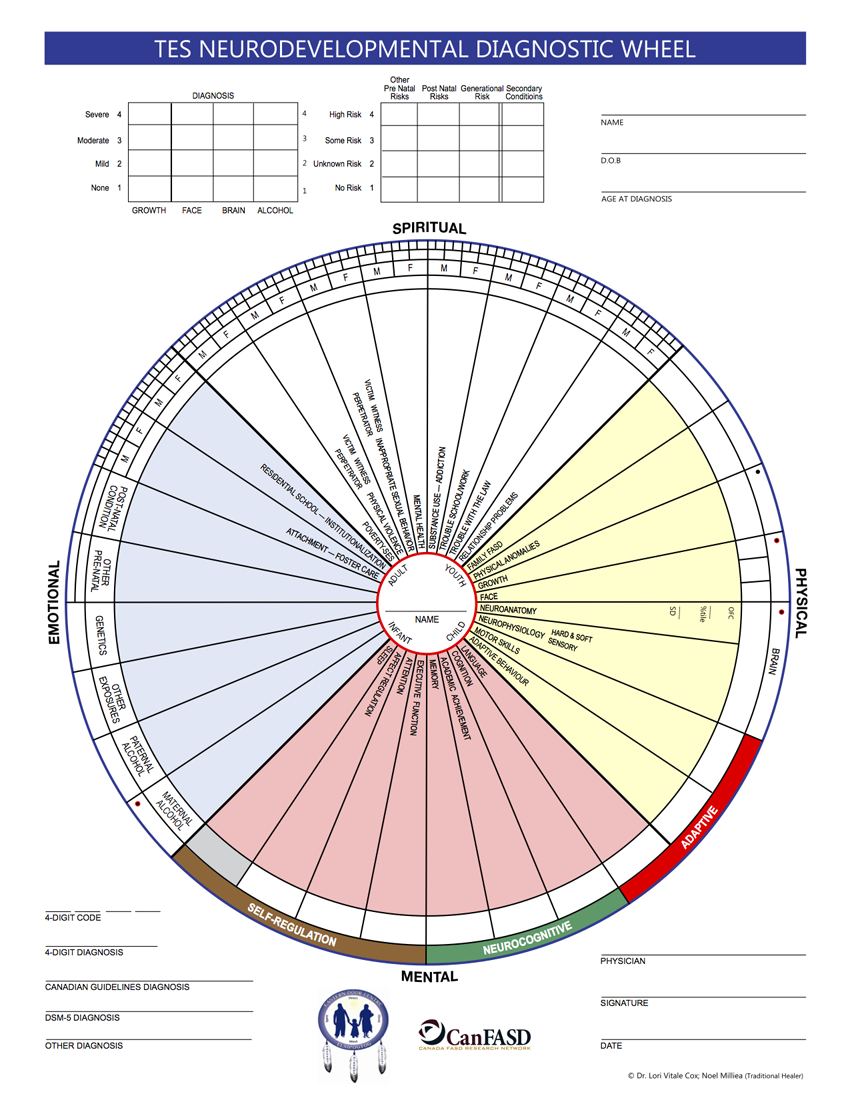Publications & Resources
Fetal Alcohol Syndrome & Fetal Alcohol Spectrum Disorder Among Aboriginal Canadians: Knowledge Gaps — Some of the characteristics of FASD are relatively well understood, but there are at the same time substantial gaps in the knowledge available in the published literature. Summaries of this literature are widely available, but few articulate the broad knowledge gaps, particularly in the context of Aboriginality.
Falling Through the Cracks: Canadian Indigenous Children with Disabilities — This paper discusses Indigenous children with disabilities in Canada and examines their experiences with federal and provincial jurisdictional and funding disputes. It explores Canada’s adversarial legal and policy techniques to delay implementation and funding of Jordan’s Principle, the effects of the Canadian Human Rights Tribunal decision, and the recommendations of a recent independent Canadian research project. Finally, it suggests ways to advance Jordan’s Principle in Canada as well as other alternatives to improve the situation of Indigenous children with disabilities.
Ten-year experience of fetal alcohol spectrum disorder; diagnostic and resource challenges in Indigenous children — Although fetal alcohol spectrum disorder (FASD) can have a disproportionate impact in some Indigenous communities, there is a paucity of literature on its epidemiology. This study’s objective was to characterize the epidemiology of Indigenous individuals under the age of 18 years who were diagnosed with FASD at Anishnawbe Health Toronto over a 10-year period.
Indigenous Approaches to FASD Prevention. This series of booklets give brief introductions and starting places for individuals, organizations, and communities who are interested in learning how they can be involved in supporting FASD prevention in Indigenous communities in ways that are respectful of history, culturally aligned and supportive of Indigenous self-determina on and cultural resurgence.
- Brief Interventions with Girls and Women
- Community Action
- Indigenous Mothering
- Reconciliation and Healing
- Wellness
Final Report: 2017 Looking After Each Other and FASD Coalition Gathering — In May 2017, the planning committee for the Looking After Each Other (LEAO) project, with assistance from Healthy Child Manitoba Office (HCMO), hosted the 2017 Looking After Each Other and FASD Coalition Gathering. The theme for this yearís event was Building Stronger Relationships and the event once again brought together FASD coalition members, FASD service providers and Elders from across Manitoba to build upon the networking that began at the 2016 Gathering.
Truth & Reconciliation
Truth & Reconciliation Call to Action #34: A Framework for Action provides background on the complex issue of individuals with FASD in the justice system with a goal to take up the TRC’s Call to Action to help improve outcomes for individuals with FASD. As well, it acknowledges the ongoing impacts of the Indian Residential School (IRS) system and provides mechanisms to bring about necessary changes in the areas of education, access, training, justice, evaluation and community supports.
Consensus Statement: Eight Tenets for Enacting the Truth and Reconciliation Commission’s Call to Action #33 — English | français
FASD, Justice & Reconciliation: Tough Questions, New Collaborations ( Executive Summary | Final Report ) — In 2015, the Truth and Reconciliation Commission of Canada released 94 Calls to Action, directed at various levels of government and to all Canadians. TRC Calls to Action 33 and 34 specically address FASD. The Calls to Action provided an opportunity to bring together policy makers, front-line workers, parents/caregivers, and students to discuss how the TRC can be considered in justice practices. The Symposium took a holistic look at how justice programs at the local and national level may incorporate culturally-appropriate programming. This included discussions on how individuals and families can be best supported in the community and, when necessary, in the justice system.

